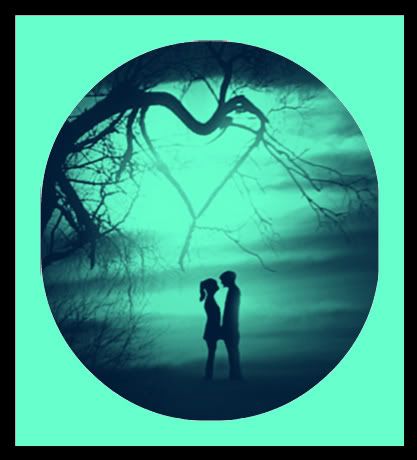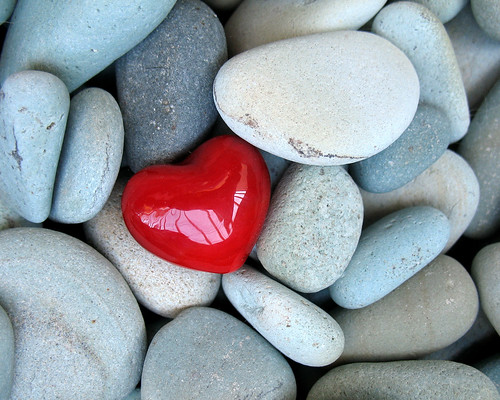Healing Relationships

_______________________________
Healing Relationships
by Gina Lake
radicalhappiness. com
_______________________________
CONDITIONING - Your preferences, opinions, judgments, beliefs, and reactions to others are all part of your conditioning. As such, you are responsible for them in the sense that no one else caused them, although others do trigger them. However, you didn’t ask for that conditioning. For the most part, it was just given to you. You could say you inherited it-from your family, experiences, culture, previous lifetimes, and astrology chart. It’s your particular programming for this lifetime, and it is no better or worse than anyone else’s conditioning, which they also inherited.
The problem is we assume that our conditioning is right and other people’s (when it is different) is wrong. This unconscious assumption is what causes problems in relationships, not the conditioning itself. If we can allow others to be different from us, then conditioning doesn’t have to be a problem. But we tend to judge others who do and see things differently than we do and try to change them. Our conditioning is bound to be different from someone else’s-we’re designed that way. So having different conditioning (i.e. beliefs, preferences, opinions, styles, ways of being) doesn’t have to be a problem unless we make it one.
We tend to hold our conditioning as inviolate: We want what we want, we like what we like, we don’t like what we don’t like, and we believe what we believe. Our conditioning feels important, meaningful, and worth fighting for. That’s where we get into trouble. Conditioning is just beliefs, preferences, and desires (which are just the thought “I want” with feelings attached to it). Conditioning belongs to the ego, not to the divine Self. While the ego will fight with others over what it believes, likes, and wants, the Self chooses love over beliefs, preferences, and desires. If you want relationships to work, that’s what you have to do as well. If even just one person in a relationship is willing to choose love over what he or she believes, prefers, or desires, a loving relationship is possible. If not, then the relationship will be a battleground over conditioning.
When your conditioning gets triggered in relationship, it’s an opportunity to discover more about it. Feelings are a sign that your conditioning has been triggered: You feel angry or sad or some other negative emotion in relation to the other person. When that happens, the tendency is to say “You make me angry when…” or “You make me sad when….” We think this is good mental hygiene to let others know how they are affecting us. We were taught to do this, but this isn’t actually helpful. It puts the burden of change on the other person, when it really lies with us.
If you feel angry or sad over something someone said or did, then that’s a sign that you have conditioning that is interfering with love. When this happens, there is a choice to be made between your conditioning or love: Is your conditioning more important than love, or is love more important than your conditioning? Most people fight for their conditioning because it feels like their conditioning is who they are: “I am someone who believes…” or “I am someone who likes….” Their identity is tied to their conditioning, and without it, it feels like they wouldn’t be who they are. And they wouldn’t: They wouldn’t be who they think they are; they would be who they really are-the divine Self.
Most people also deeply believe they can change others and that it’s their duty to do so because they believe their conditioning is superior. They choose fixing others (according to their ideas) over loving them. This choice leads to misery in relationships. No one wins the battle of conditioning. Everyone loses love. Even if you get the other person to change, at what expense is this accomplished? And at what point do you finally give up trying to mold the other person to your conditioning? The ego is never satisfied, and it always finds more improvements to push for in relationship, as in every other aspect of life.
Relationships are meant to be a safe haven in the storm of life. They are our best chance for finding love and acceptance. They also serve as a laboratory for love: They are where we learn about love. What we learn is that only the Self knows how to love, not the ego. To create that safe haven, you have to set aside the ego and drop into alignment with the divine Self, where love is possible. Our desire for love and relationship motivates us to overcome our conditioning and move into alignment with the Self because that is the only way it is possible to feel love and maintain it. We learn this by first trying to get our way in relationships and then finally surrendering to love. This is the secret of many couples who stay together for decades: They accept each other and allow them to be the way they are.
You might argue that acceptance enables your partner to continue his or her bad habits, when who could help him or her better than you? What is true in the realm of personal healing is also true in interpersonal healing: Acceptance is what heals. That is the Self’s way. It is not the ego’s, but the ego isn’t trying to help others as much as it is trying to get its way. If you really want to help someone, then accept that person and just see what miracles love and acceptance can perform.
Your job in relationships is not to change others but to release any ideas that keep you from being loving and accepting. To do this, notice when feelings are triggered, and then give curiosity, acceptance, and attention to those feelings until you discover what beliefs are behind them. Then, examine how true each of those beliefs are. You will find that none of your beliefs are true, at least not true enough to warrant withholding love from another. All of your beliefs are just conditioning.
from 'Getting Free: How to Move Beyond Conditioning and Be Happy'

Lightworkers